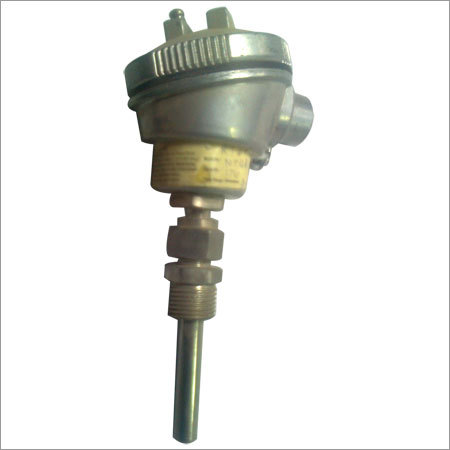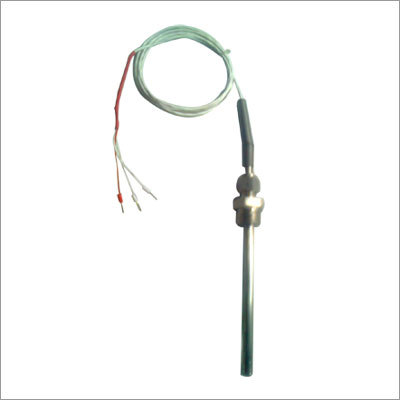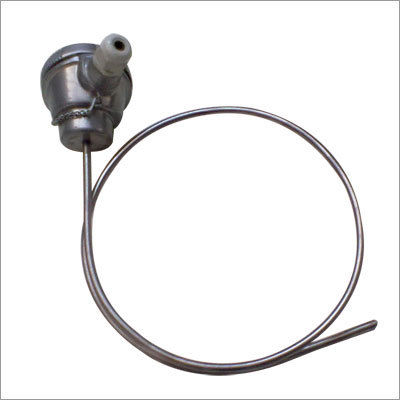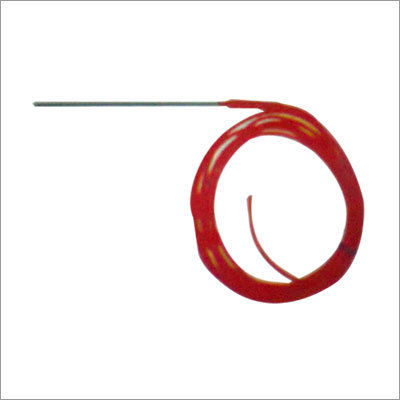Platinum Resistance Temperature Detectors
Platinum Resistance Temperature Detectors Specification
- Wireless
- No
- Features
- High accuracy, stable performance, resistance to corrosion
- Sensor Type
- RTD (Resistance Temperature Detector)
- Mounting Type
- Probe/Threaded
- Cable Length
- Approx 1 meter (customizable)
- Power Consumption
- Low (depends on excitation current, generally <1W)
- Response Time
- < 1.5 seconds
- Signal Type
- Resistance
- Sensitivity
- Approx. 0.385 /C
- IP Rating
- IP67
- Application
- Laboratory, process control, HVAC, chemical, food industry
- Product Type
- Platinum Resistance Temperature Detector (RTD)
- Material
- Platinum
- Input
- Direct temperature input
- Function
- Temperature measurement
- Usage
- Industrial temperature monitoring
- Accuracy
- Class A, 0.15C at 0C
- Resolution
- 0.1C
- Voltage
- Typically 2V to 10V (Excitation voltage)
- Weight
- Approx 10g
Platinum Resistance Temperature Detectors Trade Information
- Minimum Order Quantity
- 1 Piece
- FOB Port
- Udaipur
- Supply Ability
- Piece
- Delivery Time
- 3-20 Days Days
- Packaging Details
- As per product
- Main Domestic Market
- Rajasthan
- Certifications
- ISO
About Platinum Resistance Temperature Detectors
Reliable Industrial Temperature Monitoring
Our platinum RTDs are tailored for rigorous industrial use, delivering exceptional precision and stability. With robust stainless steel sheaths and secure insulation, theyre ideal for environments requiring corrosion resistance and sustained accuracy. The sensors are suitable for laboratory, HVAC, chemical, and food applications where consistent monitoring is vital.
Versatile and Customizable Design
You can choose from multiple protection tube diameters and cable lengths to meet your installation needs. The mounting optionsprobe or threadedsimplify integration within diverse systems, making these RTDs flexible for process control and temperature management in various industrial sectors.
FAQs of Platinum Resistance Temperature Detectors:
Q: How do Platinum Resistance Temperature Detectors measure temperature in industrial settings?
A: Platinum RTDs sense changes in temperature by detecting variations in resistance of the platinum element. As temperature shifts, resistance changes are accurately measured and output as direct temperature readings for monitoring systems.Q: What benefits does a stainless steel sheath provide for RTDs?
A: The stainless steel sheath ensures superior resistance to corrosion and mechanical damage. This makes the RTDs suitable for harsh environments, increasing their operational longevity and reliability.Q: When should I opt for PTFE or PVC insulated lead wires?
A: PTFE insulation is recommended for higher temperature environments and chemical exposure, while PVC insulation suffices for moderate conditions. Selection depends on the installations temperature range and chemical characteristics.Q: Where are these RTDs commonly used?
A: These RTDs are commonly deployed in laboratories, process control, HVAC systems, chemical plants, and the food industry due to their accuracy, reliability, and resistance to environmental challenges.Q: What is the calibration process for these sensors, and how often is recalibration needed?
A: RTDs are factory calibrated for accurate temperature readings. Given their low drift rate (<0.05C/year), recalibration is seldom required unless dictated by specific industry standards or critical accuracy needs.Q: How is the probe mounted and what customization options are available?
A: Mounting options include probe or threaded styles to suit various installation requirements. Tube diameter and cable length can be customized based on user specifications for optimal fit.Q: What are the benefits of CE and RoHS approved RTDs for manufacturers and suppliers in India?
A: CE and RoHS approvals assure compliance with international safety and environmental standards, facilitating usage in regulated markets and supporting manufacturers, service providers, suppliers, and traders in India.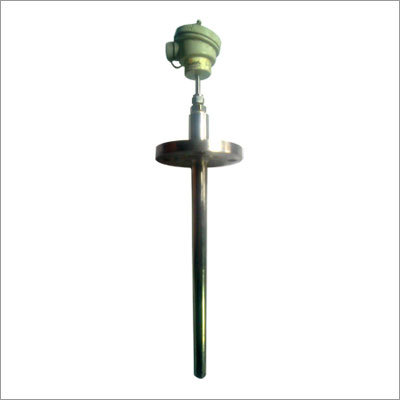

Price:
- 50
- 100
- 200
- 250
- 500
- 1000+
More Products in Resistance Temperature Detectors Category
Temperature Detectors
Minimum Order Quantity : 1 Piece
Resolution : 0.1C
Sensitivity : High
Function : Detection and Measurement of Temperature
Features : Corrosion Resistant, Fast Response, Wide Range
Wireless : No
Resistance Detectors
Minimum Order Quantity : 1 Piece
Resolution : 0.01C
Sensitivity : 0.385 /C
Function : Temperature Measurement via RTD Principle
Features : Corrosion Resistant, High Stability, Fast Response, Easy Installation
Wireless : No
Industrial Resistance Temperature Detector
Minimum Order Quantity : 1 Piece
Resolution : 0.01C
Sensitivity : Approximately 0.385 /C (Pt100)
Function : Accurate temperature measurement through resistance change
Features : Robust design, vibration resistant, fast response, customizable stem length
Wireless : No
Industrial Temperature Detector
Minimum Order Quantity : 1 Piece
Resolution : 0.1C
Sensitivity : High
Function : Temperature Measurement and Monitoring
Features : Corrosion resistant, Fast Response, High Precision
Wireless : No
We Mainly Deal In Udaipur, Rajasthan.

 Send Inquiry
Send Inquiry Send Inquiry
Send Inquiry
